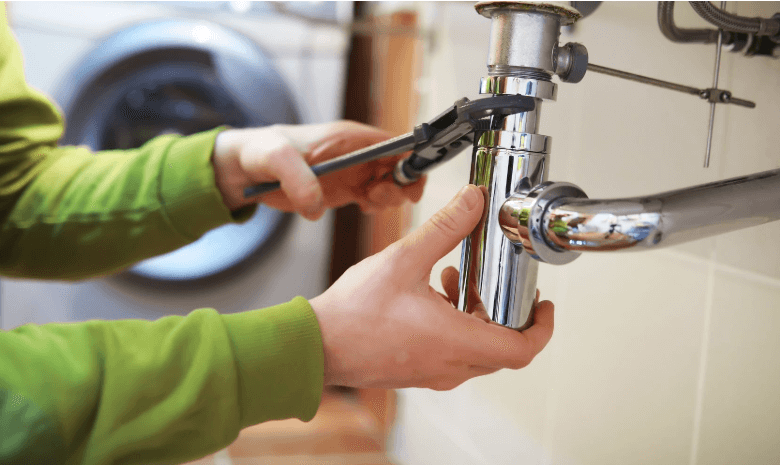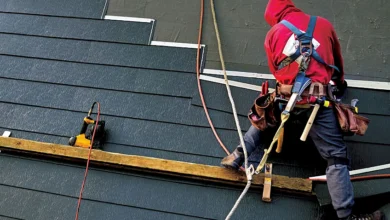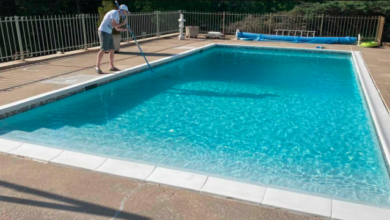How to Prevent Costly Plumbing Repairs in Rockwall

Plumbing issues can quickly escalate into expensive repairs if not addressed proactively, especially in regions like Rockwall, where seasonal changes can impact pipes. Proper maintenance and preventative measures can save homeowners from dealing with major water damage, unexpected costs, and disruptions. By understanding the risks associated with cold weather and implementing protective strategies, residents can safeguard their plumbing systems. Whether it’s insulating pipes, shutting off outdoor plumbing before winter, or knowing how to handle frozen pipes, taking the right precautions is essential. This article explores effective ways to prevent costly plumbing repair Rockwall that local homeowners may face.
Why Freezing Temperatures Can Cause Pipes to Burst
- Expansion of Frozen Water: As water turns to ice, it expands and exerts pressure on the inner walls of pipes, increasing the risk of ruptures, especially in unheated areas like basements and crawl spaces. This expansion can eventually lead to pipe fractures, causing significant leaks and water damage once the ice thaws.
- Pressure Build-Up: Even if the frozen section of a pipe doesn’t burst immediately, the pressure created between the blockage and a closed faucet can cause the pipe to crack in another location. This pressure imbalance weakens the pipe’s structure over time, making it more susceptible to bursts in future freezing events.
- Exposure in Uninsulated Areas: Pipes located in attics, garages, and exterior walls are more vulnerable to freezing because they lack adequate insulation or exposure to indoor heating. Without proper protection, these pipes are at a higher risk of freezing, leading to costly emergency repairs.
- Sudden Thawing: When a frozen pipe thaws rapidly, the sudden rush of water can cause an already weakened pipe to burst, leading to flooding and extensive damage. This is particularly problematic when temperatures fluctuate, causing repeated freezing and thawing cycles that weaken pipes over time.
See also: Supercharge Your Stock Trading with Stockity’s Innovative Technology
Steps Homeowners Can Take to Insulate and Protect Pipes
- Install Pipe Insulation: Wrapping exposed pipes in foam insulation or heat tape helps regulate temperature and prevent freezing, especially in unheated areas of the home. These insulation materials provide a protective barrier that retains heat and minimizes exposure to freezing conditions.
- Seal Gaps and Cracks: Use caulk or weatherstripping to seal any openings around doors, windows, and foundation walls where cold air can enter and lower the temperature around pipes. Reducing drafts helps maintain consistent indoor temperatures, preventing pipes from freezing even in extreme cold.
- Let Faucets Drip: Allowing faucets to drip slightly during extremely cold nights relieves pressure in the pipes and reduces the chances of freezing. The constant flow of water prevents stagnation in the pipes, making it harder for ice to form and block the flow.
- Keep Interior Temperatures Consistent: Maintaining a steady indoor temperature, even when away from home, prevents pipes from reaching dangerously low temperatures. Setting the thermostat to at least 55°F ensures that pipes stay warm enough to avoid freezing.
How to Properly Shut Off and Drain Outdoor Plumbing Before Winter
- Shut Off the Outdoor Water Supply: Locate and close the outdoor water shutoff valve to prevent water from flowing to outdoor faucets and irrigation systems. This simple step eliminates the risk of water freezing inside exposed pipes and causing cracks.
- Drain Water from Outdoor Faucets and Hoses: Disconnect and drain garden hoses, then open outdoor faucets to remove any remaining water that could freeze and expand. Leaving residual water in hoses or outdoor pipes increases the risk of ice buildup, leading to potential ruptures.
- Use Insulated Faucet Covers: Installing insulated faucet covers provides an extra layer of protection against freezing temperatures. These covers trap heat and block cold air, reducing the chances of outdoor faucets freezing and sustaining damage.
- Blow-Out Sprinkler Systems: If applicable, use an air compressor to clear water from sprinkler lines to prevent underground pipes from freezing and cracking. Failure to remove excess water from irrigation systems can result in costly repairs when pipes burst underground.
- Inspect for Leaks: Check outdoor plumbing for any leaks before winter arrives, as even small drips can freeze and cause damage over time. Fixing leaks in advance helps maintain the integrity of pipes and prevents unexpected issues when temperatures drop.
Emergency Steps to Take if a Pipe Does Freeze
- Locate the Frozen Pipe: Check for pipes with little to no water flow, typically in unheated areas like basements, crawl spaces, or along exterior walls. Identifying the frozen section quickly allows homeowners to take action before significant damage occurs.
- Turn Off the Water Supply: Shutting off the main water supply prevents pressure buildup and reduces the risk of a pipe bursting once it thaws. This step also minimizes water damage if a leak has already started forming within the pipe.
- Keep Faucets Open: Running a trickle of water through the affected faucet helps relieve pressure and allows melted ice to flow out. This continuous movement aids in faster thawing and prevents future freezing in the same section of the pipe.
- Call a Professional if Needed: If a frozen pipe is inaccessible or doesn’t thaw with gentle heating methods, contacting a plumber can prevent further complications. Professional assistance ensures the pipe is thawed safely and any potential damage is repaired before it worsens.
Conclusion
Preventing costly plumbing repairs requires proactive maintenance and preparation, particularly during colder months. By understanding how freezing temperatures impact pipes and taking preventative measures like insulation, shutting off outdoor water supplies, and knowing emergency response steps, homeowners can avoid major damage. Simple actions such as sealing gaps, keeping faucets dripping, and monitoring indoor temperatures can make a significant difference. In the event of a frozen pipe, quick intervention can prevent extensive water damage. With the right approach, Rockwall residents can protect their plumbing systems and avoid unnecessary repair costs.







